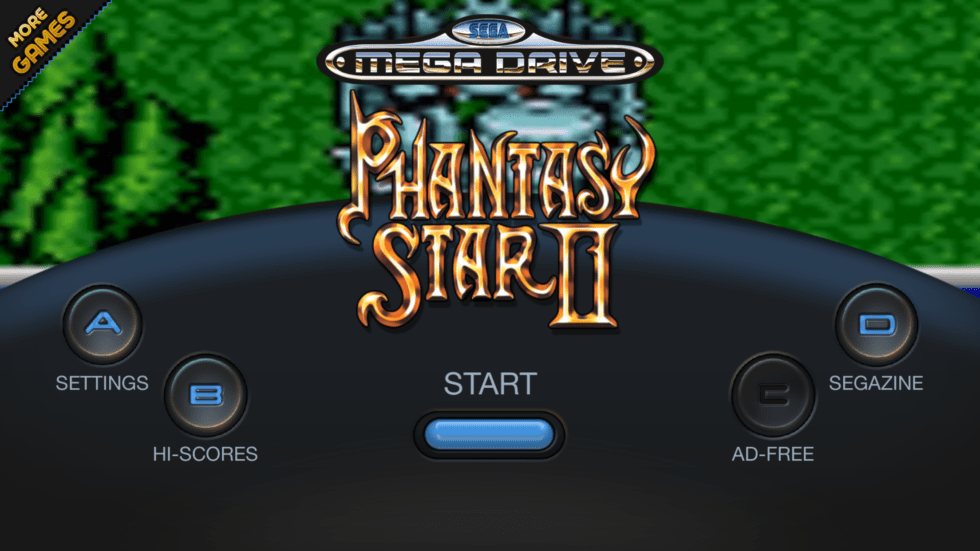The concept behind Sega Forever is a good one: bring a selection of classic Sega games to iOS and Android, and let people play them for free. Unfortunately, the execution has left something to be desired. Following the launch of Sega Forever last week, players have taken to the App Store and Google Play to complain about choppy frame rates, out-of-sync audio, and input lag, even on high-end devices like the Samsung Galaxy S8 and Google Pixel. Ars’ own testing yielded similarly poor results, with none of the games reaching the required 60FPS of the original Megadrive (Genesis) hardware.
Sega’s performance issues stem from the use of a new emulator based in Unity. Older mobile versions of retro Sega games were either direct ports—as in the case of Sonic the Hedgehog and Sonic CD—or used a native emulator, instead of one passed through Unity. Players that already paid for one of the launch games—Sonic the Hedgehog, Phantasy Star II, Comix Zone, Kid Chameleon, and Altered Beast—also suffered from issues, including the inability to remove advertisements from the game.
Speaking to Eurogamer, Sega Networks’ chief marketing officer Mike Evans blamed “fragmentation” for the wobbly launch, and defended its use of Unity instead of an alternative emulation method.
“Within mobile there’s a lot of fragmentation,” said Evans. “If you look at all the different OSs, all the different devices—with mobile, as you go live, you get some feedback which you can’t get within a sandbox environment. What we’re doing is taking that and continue working on it, and try and get every instance of every OS in advance…we’ve got some really good updates coming out soon which will address some of the challenges of the d-pad, some of the shading as well that we’re looking at how to improve. It’s just the start of things.”
“What we wanted to do is bring these games to the largest audience possible, and that’s one of the things that mobile does—many people, especially in developing countries, don’t have access to high-end PCs or Macs or other things, so mobile’s the sole way they engage with it, continued Evans. “We looked at a number of different things, and what we decided was Unity allowed us that broadness and we could piggyback a lot of the updates as well. It enables us to broaden it…it opens up other commercial opportunities for us with Apple TVs, desktops and the Switch as well.”

Following the launch of Sega Forever, the developers behind RetroArch—a popular emulator based on the Libretro API—took to Twitter to denounce Sega’s use of Unity. While there’s a certain note of sour grapes behind the tweets, RetroArch famously features excellent emulation.
“Sorry to all the people that are experiencing subpar performance with this Unity thing,” the RetroArch devs tweeted. “They could have been using RetroArch right now if they hadn’t been so stubbornly insistent on demanding we relicense our entire program to something that would strip us of all our rights, on top of some other unreasonable things like not showing any branding, etc. Hell, they could have had this running on the desktop right now on top of consoles and maybe some netplay as well. Oh well…”
Evans also responded to RetroArch via Eurogamer, saying: “One of the developers we’re using, a company called GoGames, they’d been in talks with Libretro on the RetroArch emulator. That particular emulator is under a GPL, a general public licence. From a Sega perspective, we can’t bundle GPL software with Sega proprietary games, because we lose certain rights within the games—it’s a corporate policy for us. That said, where we are with the Genesis and the Mega Drive we have a proprietary emulator that was used on the DS and Steam as well, and we’ve spent a lot of time working on that until the quality is solid as well.”
That the emulation in Sega Forever is poor is odd given the great lengths Sega has gone to in recent years to improve its retro games. Its work with M2 on the Sega Classics series for 3DS is widely regarded as excellent, while the Steam-based Mega Drive Classics and accompanying mod support have been warmly received by the PC community.
Christian Whitehead, the fangame developer behind the excellent mobile ports of Sonic has also since moved in-house at Sega, developing the upcoming Sonic Mania for Xbox One, PlayStation 4, and Nintendo Switch.
This post originated on Ars Technica UK
